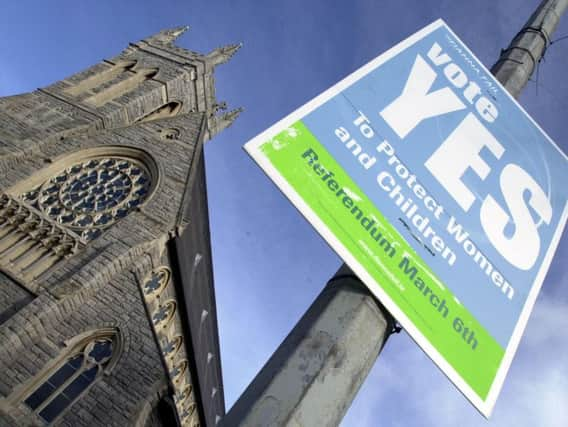Scottish democracy takes step towards 'gold standard' – Willie Sullivan


But what are they? A citizens’ assembly is made up of a representative group of around 50 to 200 citizens, chosen at random from the general public, like a jury.
The selection of members is stratified to ensure that participants are as representative as possible of the general population according to certain criteria – usually gender, age, ethnicity, geographical location, and social background.
Advertisement
Hide AdAdvertisement
Hide AdRandom selection of members means that the wider public can be confident that members are fellow citizens, just like them, and are not representing special interests.
Citizens then hear from experts and campaigners from across the spectrum and society to learn, consult, and then discuss between them on ways forward on complicated issues – away from the sometimes shrill, antagonistic process of (for example) an immediate, full-scale referendum.
The most well-known citizens’ assembly is that which took place in Ireland between 2016 and 2018. The Assembly was composed of a chairperson, appointed by the government, and 99 ordinary citizens "randomly selected so as to be broadly representative of Irish society" in terms of age, gender, social class, and regional spread.
Members debated on a number of topics, including removing the country’s constitutional ban on abortion – and it had a huge impact. Several recommendations – including ending the ban on abortion – were successfully put to a referendum in May 2018.
We’ve been working on public engagement and innovations in democracy in Scotland for years, through public events collectively involving thousands of citizens, helping to shape their communities.
The ERS has also published new proposals for a fresh model for local democracy in Scotland, featuring permanent citizens' assemblies to feed into local decision-making. And on a UK-wide level, we helped run a national citizens’ assembly on Brexit – which could form a template for a Government-backed one in future.
So we’re delighted that the Scottish Government has decided to use citizens’ assemblies to upgrade Scottish democracy.
Old-fashioned party politics and a binary vision have failed to provide solutions that Scots can unite around.
Advertisement
Hide AdAdvertisement
Hide AdThe initial structure and the open questions are a good start. Our campaign for more people power at a local level through our ‘Act As If You Own the Place’ initiative has taught us a great deal about what the gold standard in public involvement might look like.
The hard work starts now: there is a lot of work to do on this and in making sure the Scottish people see the assembly as the trusted, independent institution that it should be.
It's positive that the Government is keen to hear from experiences here in Scotland and from around the world.
So our verdict is so far so good – and we look forward to working with all partners on ensuring this is the best deliberative democratic process possible.
On the evening of Monday, 8 July, the ERS will be hosting a public debate featuring experts and politicians, to discuss the citizens' assembly plans. Contact [email protected] to find out more. Joanna Cherry MP QC, Dr Jess Garland, and Dr Oliver Escobar are confirmed already.
Willie Sullivan is director of ERS Scotland
